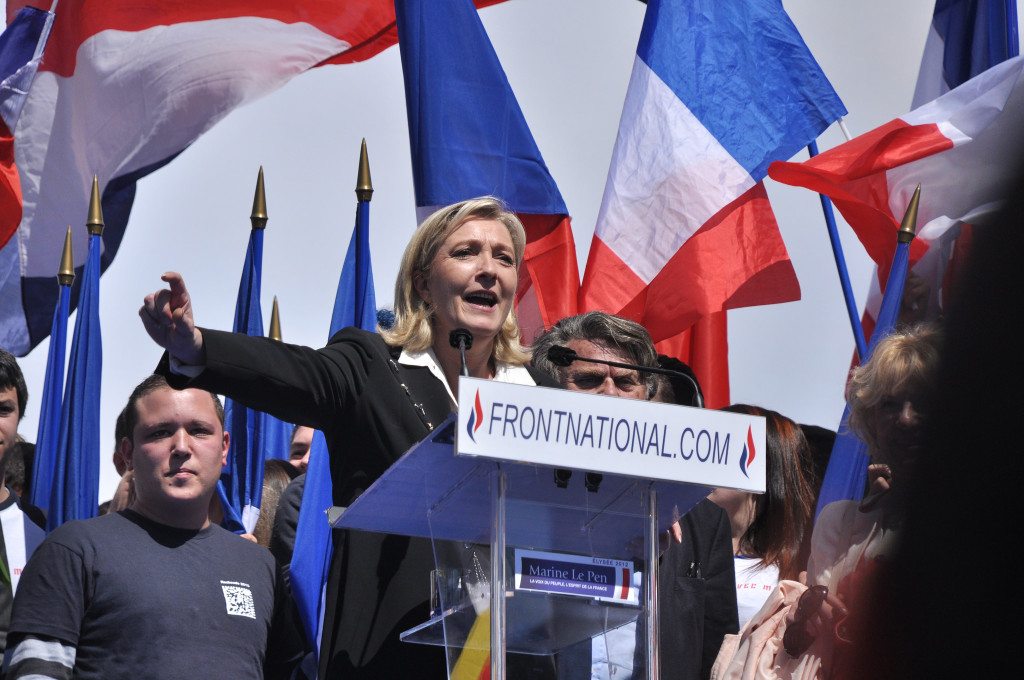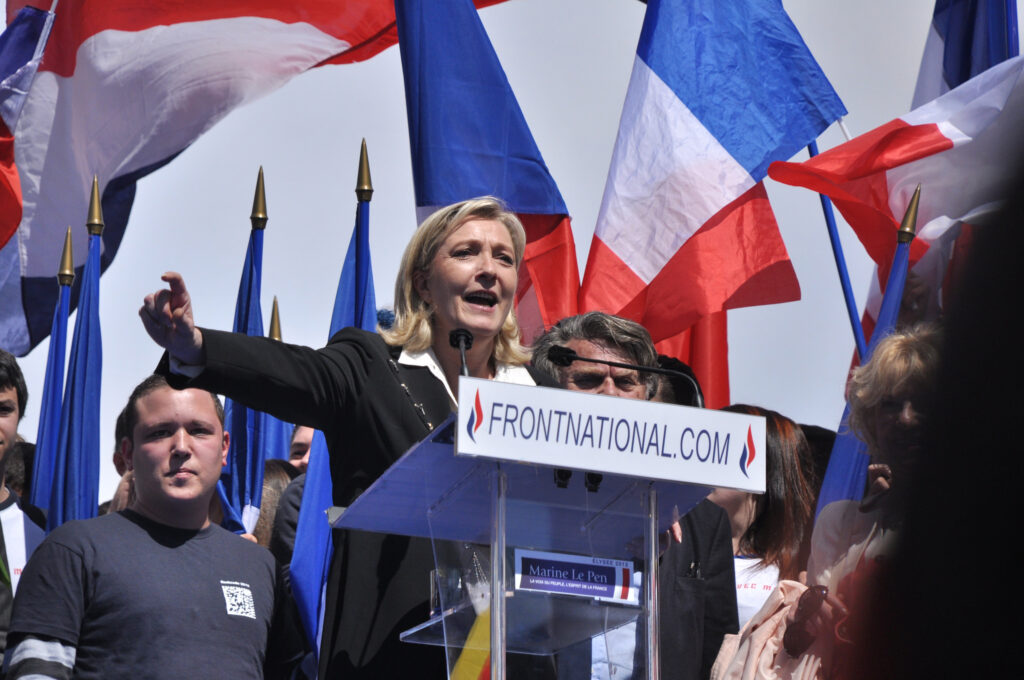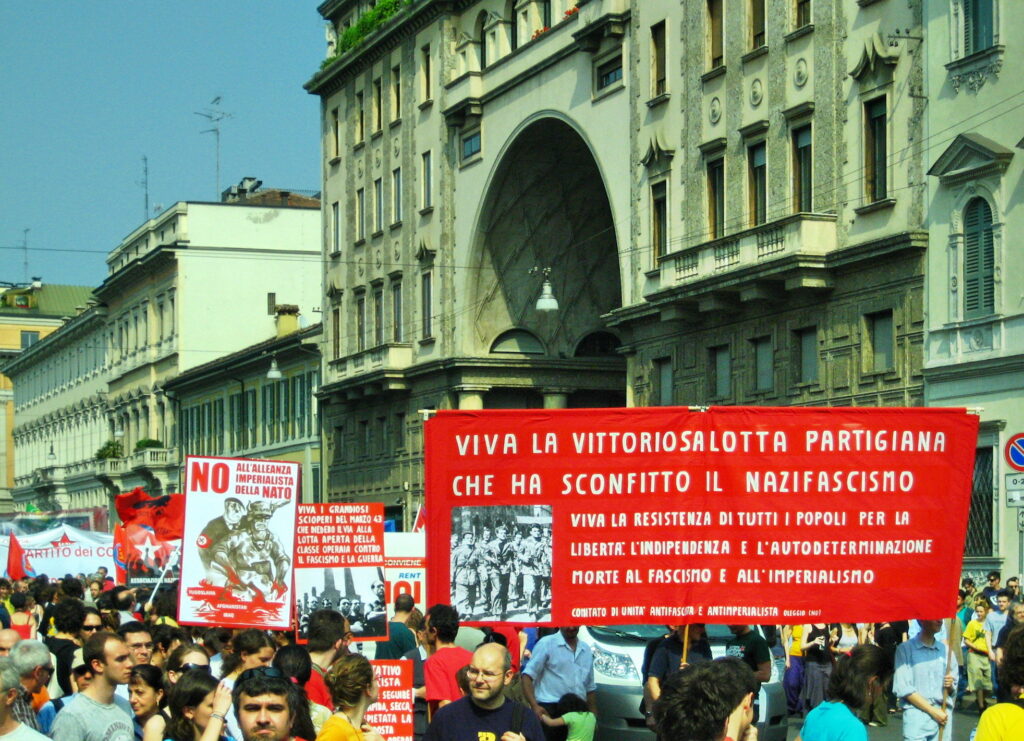
“The decision of the American people must be interpreted as the victory of freedom, the freedom of a sovereign people”, Marine Le Pen tweeted just hours after president-elect Donald Trump locked down the 270 electoral votes that set him on his way to the Oval Office. Although Le Pen on average receives only around 300 retweets compared to Trump’s 3,000, her active presence on social media communicates her wish to follow in the footsteps of the business mogul. In the aftermath of the 2016 US presidential election that sent shockwaves around the world, many populist leaders in Europe voiced their support for the President-elect. Marine Le Pen, the leader of France’s National Front party and a popular spokeswoman of the far-right movement in Europe, took it one step further by not only praising Trump’s words and actions, but also mimicking them. If Le Pen proceeds to sweep the French presidential election this year, the US-French alliance will be stronger than ever, as Trump and Le Pen take their vows and metaphorically sign off on a four-year contract of mutual understanding and compatibility.
Modern Populism in Europe
The global financial crisis of 2008 was the trigger that set populist politics in Europe into motion. Right-wing parties had always existed in Europe, but never gained much momentum. Some regarded them as “taboo” and associated with “neo-Nazism”. However, as unemployment rates skyrocketed and countries faced severe economic slowdowns and piling national debts, many in Europe lost faith in left-wing politics. The increase in globalization created antipathies among the people who felt they were being cheated at their own game. Suddenly, Austria’s Freedom Party and France’s National Front party became serious candidates on the election ballot. The final spark that lit the fuse of populism in Europe was the refugee crisis that caused over a million migrants to pour into countries still recovering from their own crises. Newspaper headlines and twitter feeds were flooded with charged, nationalist rhetoric, stirring up anger and resentment in the public.
The most recent election cycle in the United States has directly mirrored Europe’s era of populism. Back in 2010, anti-Islamic sentiments were running high throughout the continent. Some women werefined for wearing a niqab, while a Danish newspaper ridiculed the Prophet Muhammad through a series of hateful cartoons. President Trump channeled the same hatred towards the Muslim community when on January 27th he signed an executive order banning refugees and “nationals of seven Muslim-majority countries from entering the United States for at least the next 90 days by executive order.” Additionally, one of the running slogans of Austria’s Freedom Party was the simple phrase “Austria First”. This certainly echoes Trump’s tweet on July 19th, 2016 when he wrote “Such a great honor to be the Republican Nominee for President of the United States. I will work hard and never let you down! AMERICA FIRST.” These and other similarities demonstrate America and Europe’s hand-in-hand progression into the dangerous territory of self-absorbed, hateful politics. France has taken the vitriolic allegiance one step further.
France and America: Conjoined Twins
Apart from incessant tweets, many aspects of Marine Le Pen’s political platform directly epitomize those of Trump’s. Just as Trump has called for automotive factories (specifically Ford) to be moved to the US from Mexico, Le Pen announced an identical plan “to repatriate production of French motor vehicles and other industrial goods”. This high-level protectionism has been a hallmark of populist politics in the past years. Political leaders like Le Pen believe that homemade production of national goods is a form of “economic patriotism” which will ultimately create new jobs and lessen international competition. Although protecting jobs in one’s own country is advantageous, it should not come at the expense of turning away foreign immigrants while placing high tariffs on imported goods. Because international markets are so entangled with each other in today’s global economy, many fail to perceive how severely another country’s market collapse could affect the American economy. If Trump severs important economic ties with either Mexico or China, the US will suffer the consequences. As reporter James Poulos from The Week states, “If you think immigration, wage stagnation, and drug crime are problems in the U.S. now, consider the consequences if China’s tanking economy takes down Mexico’s, too”. To this, the populists would respond with calls to secure their country’s borders.
Although building walls and strengthening border security does not fix the root cause of illegal immigration, right-wing leaders like Le Pen and Trump continue to live in their own delusion. Le Pen and Trump have uttered almost identical messages on this issue. Both politicians have engaged in slanderous name-calling of the immigrants crossing over their countries’ borders, and both have accepted strong borders as the solution to fight illegal immigration. Shortly after Trump called for building a wall along America’s southern border, Le Pen echoed his words in a statement: “it is essential that France gets back control of its national borders once and for all. Without borders, neither defense nor security is possible”.
Trump and Le Pen’s hatred does not only extend to refugees, but also to the elitist establishment. During his campaign, Trump constantly reiterated the fact that he is an outsider, a man who can change the political climate in Washington D.C., and a man who can give the power back to the people. Much of this establishment happens to be Jewish, suddenly shifting Trump’s rhetoric from being anti-establishment to vaguely anti-Semitic. Although Trump may not be explicitly anti-Semitic considering he has a (recently converted) Jewish daughter, son-in-law, and grandchildren, many of his right-wing supporters certainly are. Le Pen and the National Front party have adopted virtually the same stance toward the “Jewish establishment” as Trump. Capitalizing on Francois Hollande’s low approval ratings, terrorist incidents, and a weak euro, Le Pen has fueled a wide hatred towards the establishment in France and the European Union. Catherine Heron, a Paris-based corporate communications manager shared that “people feel that the government and politicians in general are not up to their task anymore.” It is perfectly justified to be dissatisfied with one’s own government if one’s nation remains economically stagnant, is plagued by terrorist attacks, and is overcome with a general sense of insecurity. However, the National Front party’s roots traditionally lie in anti-Semitic and xenophobic rhetoric. Jean-Marie Le Pen, the father of Marine Le Pen and former head of the National Front Party, was recently accused of “inciting hatred for anti-Semitic statements”.
Although the two politicians feel they are moving their countries forward by securing jobs for their people and rekindling patriotism, their resistance to globalization and modernization will ultimately redact advancements made by their countries in the past few decades. In October 2015, Marine Le Pen said in a statement “Only the [National Front party] plans to give back to France those essential weapons [such as control of its national budget and borders]to help it fight in a globalized world and achieve innovation and re-industrialization.” Despite the fact that all nations require secure borders to ensure their sovereignty, demonizing and forcing the expulsion of immigrants is completely contrary to building up a strong economy and ensuring job security. Some opponents of immigration claim that it negatively impacts the economy as an increase in the “labor supply reduces wages as workers compete in an increasingly crowded economy”. This logic has been consistently rejected by economists who point to the fact that native-born citizens and immigrants compete for different jobs requiring different skill-sets. If these two groups compete for the same job, businesses usually respond by expanding their enterprise, thereby creating more job opportunities rather than less. A study by the National Bureau for Economic Research actually shows that immigration “reduces the share of offshored jobs”, thereby encouraging job creation in the United States. It is because of immigrants that jobs are being created on native soil in the first place.
Implications of a Flawed Logic
Trump’s election to the presidency came as a shock to the nation, but the executive orders signed within his first week in office were no less shocking. It has become incredibly concerning that more and more populist leaders in Europe like Marine Le Pen have become Trump policy parrots. Trump has set off a fuse among his own people that has been sparked by his upsetting and discriminatory policies. Major American cities are already experiencing the birth of a citizen-led revolution through their protests.
Le Pen as President would not only normalize discriminatory policies within France, but could send the nation back to a pre-Napoleon era of popular uprisings and violent insurrections. In light of presidential competitor François Fillon’s fraud and corruption scandal, Le Pen has a much better chance of securing the presidential office. This scenario strongly echoes the Hillary Clinton’s email scandal that may have cost her the election, allowing Donald Trump to secure crucial votes in swing states. If Le Pen really does win this election, the world should expect a stronger, more radical alliance between the US and France.
The views expressed by the author do not necessarily reflect those of the Glimpse from the Globe staff, editors or governors.







